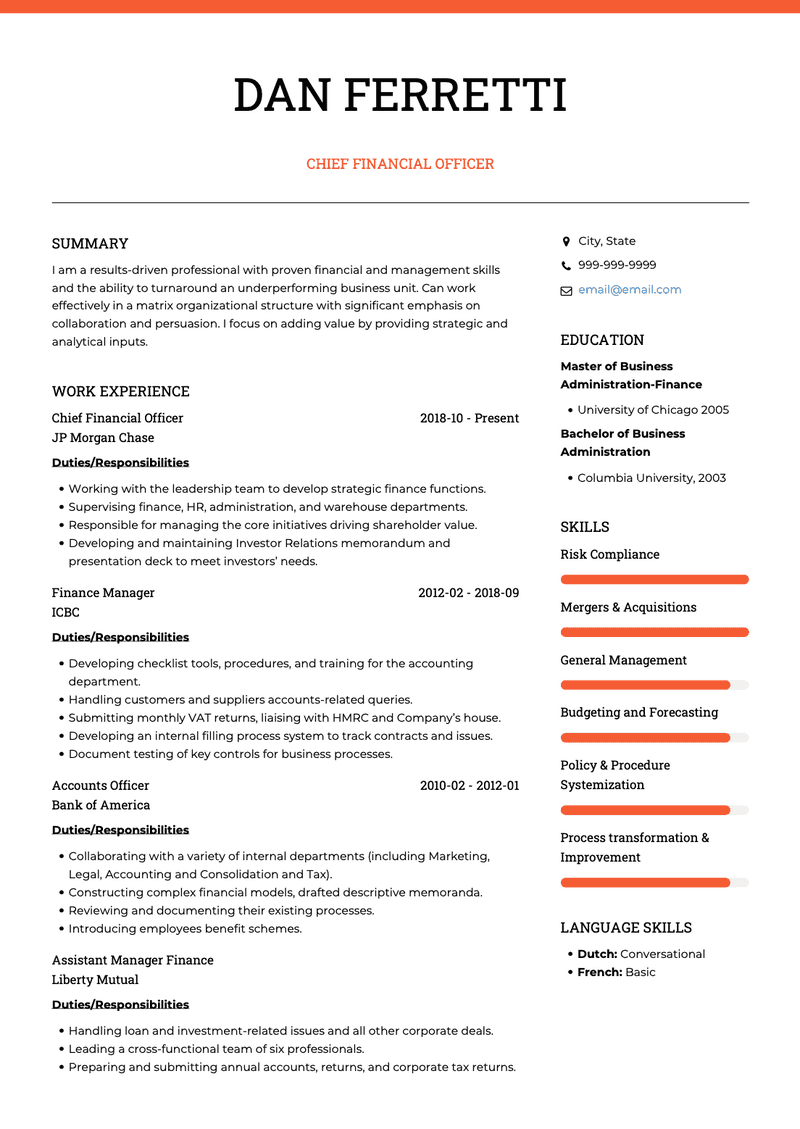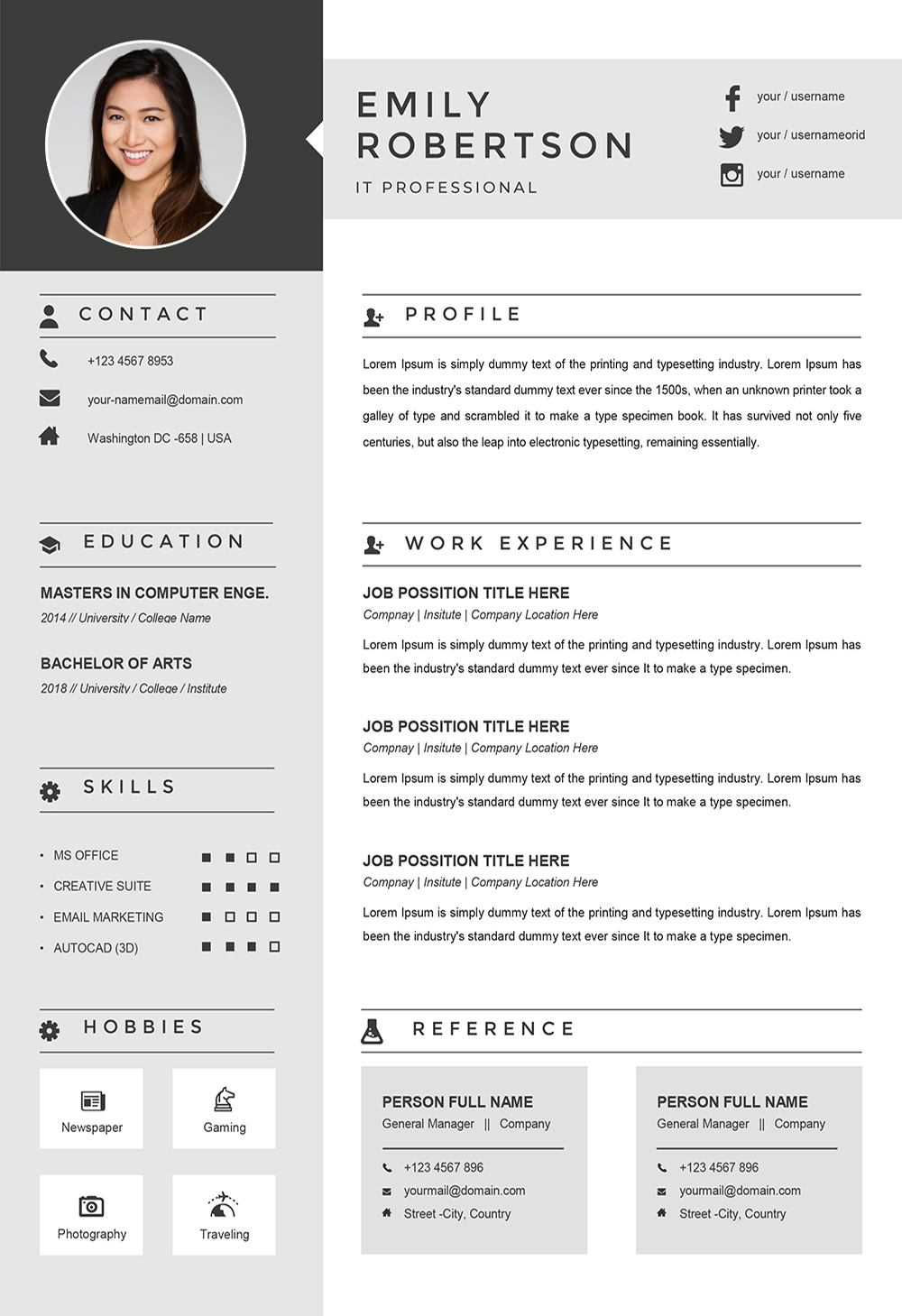Alright folks, let's dive straight into it. Creating a CV for finance jobs can feel like navigating a maze, but trust me, it doesn’t have to be overwhelming. Whether you're a fresh graduate or a seasoned pro looking to switch roles, your CV is your ticket to landing that dream job in the finance industry. So, buckle up because we're about to break it down step by step.
Now, when it comes to a CV finance, it’s not just about listing your skills and experiences. You need to make it stand out, right? Recruiters in the finance sector receive hundreds of applications daily, so you want yours to pop off the page. Think of it as your personal sales pitch—only better.
Here’s the deal: this guide isn’t just another run-of-the-mill article. We’re going deep, covering everything from formatting tips to killer strategies that’ll help you ace your finance CV. Ready to take your career to the next level? Let’s go.
Read also:Anjali Arora Viral Porn Debunking The Myth And Understanding The Truth
Table of Contents
Understanding the Importance of a CV in Finance
Key Components of a Winning Finance CV
Tailoring Your CV for Different Finance Roles
Showcasing Relevant Skills and Experience
Read also:Chad Gable Wife
Incorporating Quantifiable Achievements
Leveraging Keywords for ATS Systems
Getting Feedback and Revising Your CV
Final Thoughts on Your Finance CV Journey
Understanding the Importance of a CV in Finance
A CV finance isn’t just a document; it’s your first impression on potential employers. In the finance world, where numbers matter, your CV needs to reflect precision, attention to detail, and professionalism. Recruiters are looking for candidates who not only understand finance but also know how to communicate their expertise effectively.
Let’s face it, the competition is fierce. To stand out, you need to highlight what makes you unique. Are you great with Excel? Have you managed multimillion-dollar budgets? These are the things that’ll grab attention. Remember, a well-crafted CV can open doors to interviews and eventually, job offers.
Why Finance CVs Are Different
Finance roles demand a specific set of skills and experiences. Unlike other industries, recruiters in finance are looking for candidates who can handle complex financial data, manage risk, and make informed decisions. Your CV should reflect these competencies while showcasing your ability to contribute to the company’s bottom line.
Key Components of a Winning Finance CV
So, what exactly goes into a winning finance CV? Let’s break it down into manageable chunks. First off, you’ve got your personal details, career objective, work experience, education, and skills. But here’s the twist: each section needs to be tailored to the finance industry.
For instance, your career objective shouldn’t just say “seeking a finance role.” Instead, it should highlight your goals and how you plan to add value to the organization. Something like, “Dynamic finance professional with a proven track record of optimizing financial processes and driving profitability.” See the difference?
Essential Sections for Your CV
- Personal Information: Keep it simple—name, contact details, and LinkedIn profile.
- Career Objective: A concise statement that aligns with the job description.
- Work Experience: Focus on achievements rather than just listing responsibilities.
- Education: Highlight relevant degrees and certifications (e.g., CFA, CPA).
- Skills: Include both technical and soft skills that are relevant to finance.
Tailoring Your CV for Different Finance Roles
Not all finance jobs are created equal. Whether you’re applying for an accounting position, investment banking, or financial analysis, your CV should reflect the specific requirements of the role. Let’s say you’re aiming for an investment banking analyst position. In that case, emphasize your analytical skills, financial modeling expertise, and knowledge of capital markets.
On the flip side, if you’re targeting an accounting role, focus on your experience with financial statements, auditing, and compliance. The key here is to align your CV with the job description. It’s like a puzzle where every piece fits perfectly.
Tips for Customizing Your CV
- Research the company and tailor your CV to match their values and needs.
- Use industry-specific jargon but don’t overdo it.
- Include relevant keywords from the job description.
Showcasing Relevant Skills and Experience
Now, let’s talk about skills and experience. Your CV finance should scream “I’m the right person for this job!” Start by listing your technical skills. Are you proficient in Excel? Do you have experience with financial software like Bloomberg or SAP? These are the things recruiters want to see.
But don’t stop there. Soft skills are equally important. Communication, problem-solving, and teamwork are crucial in finance. Think about how you’ve demonstrated these skills in previous roles and include specific examples.
Examples of Strong Finance Skills
- Financial analysis and reporting
- Risk management
- Budgeting and forecasting
- Investment analysis
- Data interpretation
Tips for Formatting Your CV
Formatting matters, big time. A well-organized CV is easier to read and leaves a better impression. Stick to a clean, professional layout with clear headings and bullet points. Avoid fancy fonts and excessive colors—they might look cool, but they can distract from the content.
Here’s a quick tip: limit your CV to one or two pages. Recruiters don’t have time to sift through lengthy documents. Prioritize the most important information and make sure it’s easy to find.
Best Practices for CV Formatting
- Use a consistent font size and style throughout.
- Include white space to improve readability.
- Align text properly for a polished look.
Common Mistakes to Avoid
Even the best of us make mistakes, but when it comes to your CV finance, you want to avoid them at all costs. Typos, grammatical errors, and inconsistent formatting can cost you an interview. Take the time to proofread your CV multiple times or, better yet, have someone else review it.
Another common mistake is including irrelevant information. If you worked as a barista ten years ago, it’s probably not necessary to mention it unless it directly relates to the finance role you’re applying for.
Things to Avoid in Your CV
- Overloading with unnecessary details.
- Using overly complex language.
- Forgetting to update your contact information.
Incorporating Quantifiable Achievements
Numbers speak louder than words, especially in finance. Instead of saying “increased company profits,” say “boosted company profits by 15% through strategic cost-cutting measures.” Quantifiable achievements add credibility to your CV and show recruiters the tangible impact you’ve made in previous roles.
Don’t shy away from using percentages, dollar amounts, or any other metrics that demonstrate your success. Just make sure they’re accurate and verifiable.
Examples of Quantifiable Achievements
- Reduced expenses by 20% through process optimization.
- Generated $500,000 in additional revenue through new investment strategies.
- Improved financial reporting accuracy by 10%.
Leveraging Keywords for ATS Systems
Most large organizations use Applicant Tracking Systems (ATS) to screen CVs. This means your CV needs to include relevant keywords to pass the initial screening. Keywords could include specific finance terms, software names, or certifications.
Here’s a pro tip: incorporate keywords naturally throughout your CV. Don’t stuff them in—recruiters can spot that a mile away. Instead, weave them into your work experience and skills sections.
Popular Finance Keywords
- Financial modeling
- Portfolio management
- Regulatory compliance
- Excel proficiency
- Risk assessment
Getting Feedback and Revising Your CV
Creating a killer CV is a process, not a one-time task. Once you’ve drafted your finance CV, seek feedback from trusted colleagues or mentors. They might catch things you missed or suggest improvements you hadn’t considered.
Revising your CV is also important. As you gain more experience or acquire new skills, update your CV accordingly. Think of it as a living document that evolves with your career.
How to Get Constructive Feedback
- Share your CV with industry professionals.
- Ask for specific areas of improvement.
- Be open to criticism and willing to make changes.
Final Thoughts on Your Finance CV Journey
Creating a CV for finance jobs isn’t rocket science, but it does require effort and attention to detail. By following the tips and strategies outlined in this guide, you’ll be well on your way to crafting a standout CV that gets noticed by recruiters.
Remember, your CV is more than just a list of accomplishments—it’s a reflection of who you are as a finance professional. So, take pride in it and make it shine. And hey, don’t forget to proofread before hitting send!
Now, it’s your turn. Leave a comment below and let us know how this guide helped you. Or, if you’re feeling generous, share it with someone else who might find it useful. Happy job hunting, folks!


![Finance Student resume example + guide [Get hired fast]](https://standout-cv.com/wp-content/uploads/2023/07/Finance-Student-Resume-1.png)